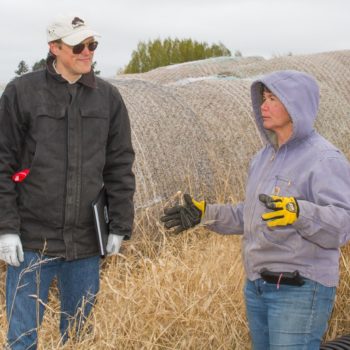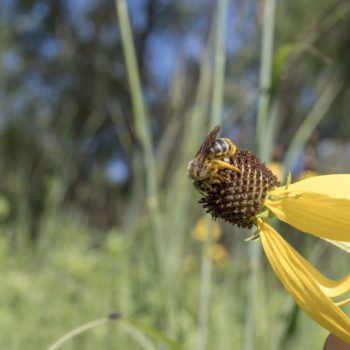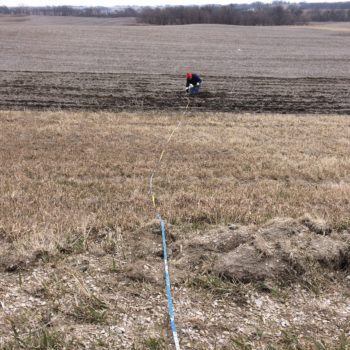Design and Layout of Prairie Strips
Get started with your prairie strips by bringing stakeholders together, gathering information, and applying for financial assistance. Then, mark the strips border with flags.
Make a Plan
Hold a Meeting. Landowner, tenant, and Prairie STRIPS Consultants should meet to discuss objectives, challenges, and a path to success.
Analyze field maps. Look at yield, contour, and LiDAR maps to determine STRIPS placement. STRIPS are most useful on steep slopes, and where overland flow of water is greatest.
Take existing practices into account. Identify where existing practices such as terraces, CRP, or a riparian buffer are already in place.
Determine STRIPS dimensions. Use crop production equipment width (sprayer, planter) and field characteristics to determine number of STRIPS, and their width (~30-60 feet), totaling around 10% of field area.
Ensure accessibility. Make sure that STRIPS will be accessible to a tractor and mower in the growing season for establishment management
Identify barriers to establishment. Find out where herbicides were applied that may carry over into seeding dates, or where allelopathic cover crops like rye might inhibit germination.
Apply for Financial Assistance
This step is optional, and depends on your goals and farm resources.
Apply for assistance. Talk with the Farm Service Agency about the Conservation Reserve Program. Find more details in How Prairie Pays.
Follow the implementation timeline. This will be provided by the funding entity.
Lay Out Prairie Strips
Flag out the strips. Measure and mark borders of strips in the field.
Take GPS coordinates. Ensure that farm field navigation equipment is updated with prairie strip locations.
Plan for soil conservation. Avoid edges up and down vertical slopes, which may cause washouts.
Make sure everyone is on board. Both farmer and landowner should review and approve the flagged out strips before the prairie is seeded.
Next Step: Prairie Seeding and Establishment
Reviewed by the STRIPS science team at Iowa State University for science/economic content related to prairie strips on April 3rd, 2018.



